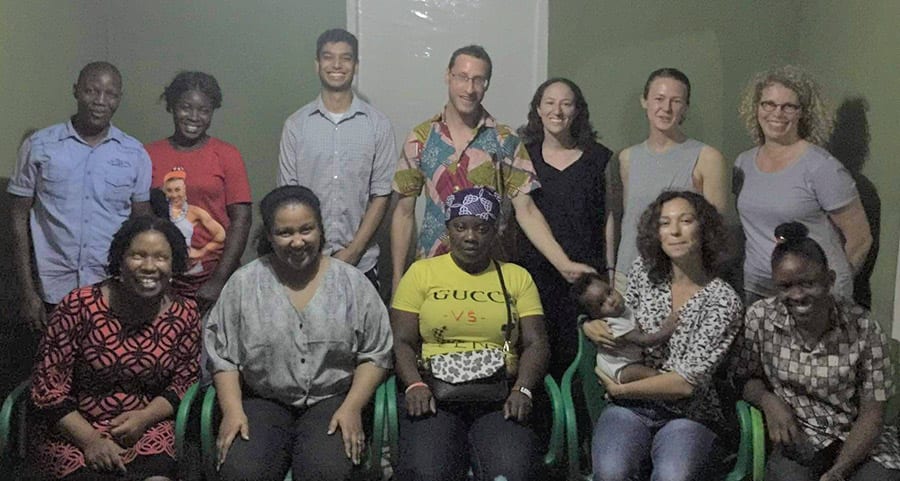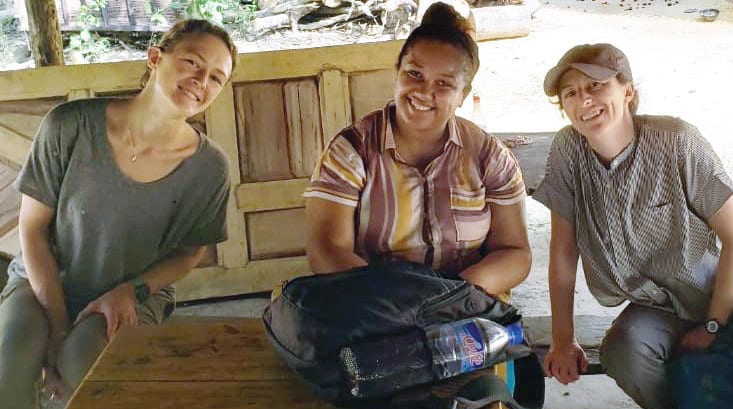
By Sarah Weld
After months of video meetings, legal research, and document scouring, four International Human Rights Law Clinic students traveled to Liberia in March, culminating a yearlong collaboration.
Elise Baker ’20, Ivey Dyson ’21, Raja Krishna ’21, and Allaa Mageid ’21, accompanied by clinic Co-Director Laurel Fletcher and Teaching Fellow Tamara Morgenthau, met with project partners and interviewed indigenous community members fighting to have their land rights recognized.
Supervised by Morgenthau and working with Green Advocates International and renowned lawyer Alfred Brownell, the students are supporting indigenous communities trying to protect their environmental and human rights against largescale agricultural development.

“The entire project has been a massive exercise in international teamwork,” Krishna says.
For Dyson, “the work in the field was incredible. Getting to put faces with names of people we had only read about in documents was very impactful.”
The students met with Brownell, winner of the prestigious Goldman Environmental Prize for Africa last year, when he spent a few days at Berkeley Law in October. A Liberia native whose activism has made it unsafe for him to return home, Brownell led a successful effort to stop the clearcutting of 500,000-plus acres of tropical forests by palm oil developers— allowing indigenous communities continued forest access.
Brownell, who now lives in the U.S., credits the students for showing strong “attention to granular details while probing the intricacies for how unsecured land rights have driven egregious rights violations in indigenous communities across the globe. Instead of becoming the teacher, I became the peer learner [with] a group of knowledge-thirsty students. The clinic and students showed so much ethics, respect, and professionalism.”
Morgenthau says the students “have really taken ownership of the project in all aspects. They have a command of all the legal and factual issues and have taken the lead in fostering relationships with the clinic’s partners. This came full circle on our trip when we were able to collaborate in the field.”
Beyond research, writing, analysis, and evidence-gathering, challenges like coordinating phone calls across many time zones “has definitely had us practice communication and flexibility, two vital legal skills,” Baker says.

Dyson says Morgenthau pushed them to delve into international human rights and property law, giving them room to lead the project, and that the collaboration “allows us to feel like lawyers in action as opposed to students with marching orders.”
Mageid agrees: “Some of us became experts on the property issues while others became experts on the health, environmental, and social issues. It added up to being able to address our client’s goal of moving forward the fight for protecting indigenous people’s rights.”
As Fletcher notes, a hallmark of clinic work is coordinating with frontline advocates like Brownell. “Taking students to Liberia gives them fieldwork experience that strengthens their commitment to work for human rights,” she says.